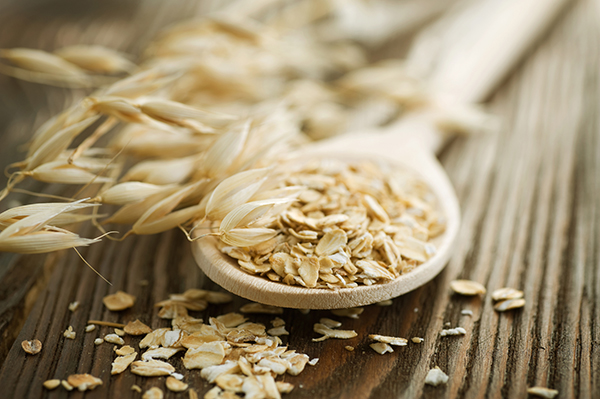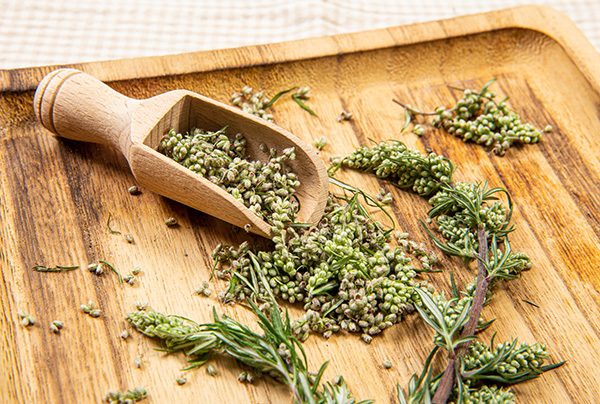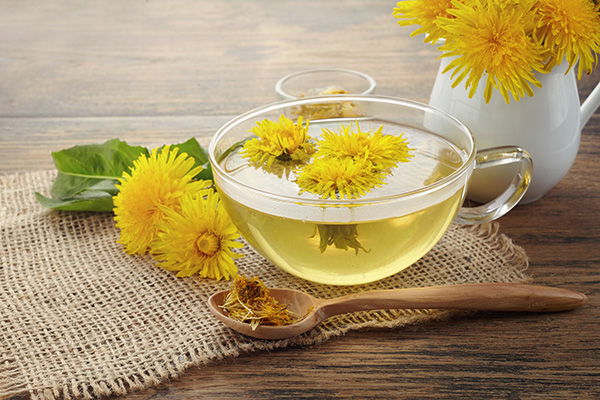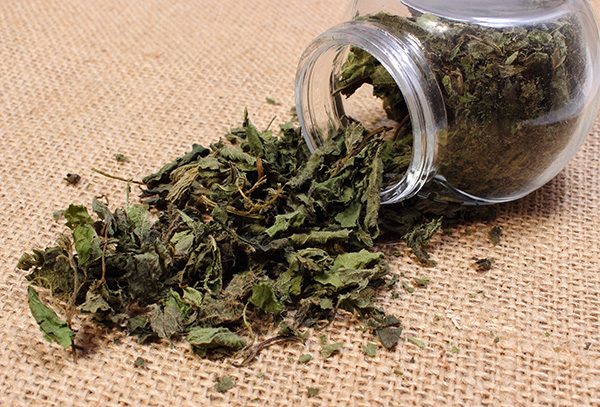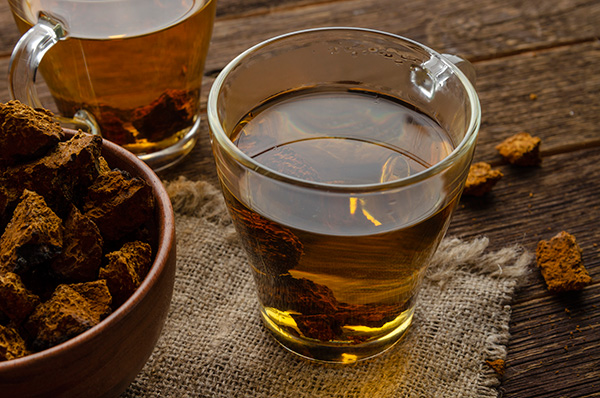Cinnamon and Bay Leaf Tea Benefits
Cinnamon and bay leaf tea is a soothing beverage that combines the powerful health benefits of both ingredients. Brimming with antioxidants, anti-inflammation traits, and possible blood sugar-reducing effects, this tasty tea is a great daily routine addition.
This article delves into the benefits, drawbacks, and ways to make cinnamon and bay leaf tea.
What Is Cinnamon and Bay Leaf Tea Made From?
Cinnamon and bay leaf tea is made by steeping cinnamon sticks or ground cinnamon and dried bay leaves in boiling water.
Cinnamon is derived from the inner bark of the cinnamon tree.

At the same time, bay leaves come from the evergreen bay laurel tree native to the Mediterranean region.
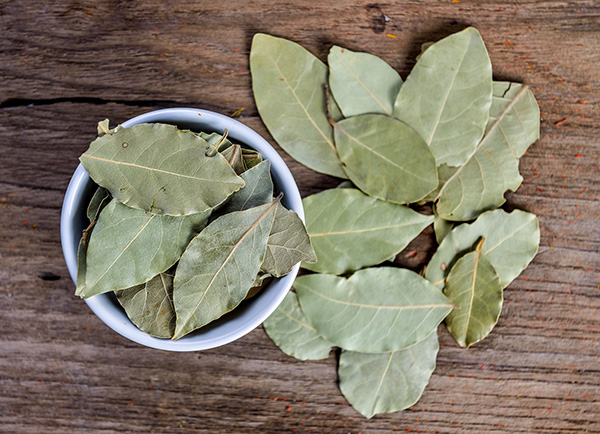
Combined, these two ingredients create a unique and delicious tea packed with health benefits.
Cinnamon and Bay Leaf Tea Benefits
Cinnamon and bay leaf tea is an aromatic and flavorful herbal infusion with a range of potential health benefits. These potent herbs combined provide numerous benefits for overall health and wellness.
Loaded With Antioxidants
Cinnamon and bay leaves abound with antioxidants, shielding the body from the harm of free radicals.
Lowers Inflammation and May Improve Heart Health
The tea may lower inflammation, which is connected to many health problems. Studies have linked these herbs’ anti-inflammatory properties to better heart health (1, 2, 3, 4).
May Help Reduce Blood Sugar and Prevent Diabetes
Cinnamon decreases blood sugar and enhances insulin sensitivity (5, 6, 7, 8). Polyphenols in bay leaves may aid glucose and cholesterol management for diabetics (9).
Drinking cinnamon and bay leaf tea may help prevent or manage diabetes.
May Promote Weight Loss
Cinnamon and bay leaf tea may contribute to weight loss by improving insulin sensitivity and blood sugar control (3, 10). While not a direct weight loss aid, this herbal tea can support overall health and help with weight management when combined with a healthy diet and exercise routine.
Fights off Bacteria and Fungi
The tea’s antimicrobial traits help combat dangerous bacteria and fungi (11, 12).
May Reduce Menstrual Cramps and Other PMS Symptoms
Some research links cinnamon to easing menstrual pain and PMS symptoms (13, 14). Consuming cinnamon and bay leaf tea during menstruation may provide relief from discomfort.
May Fight Skin Aging
The antioxidants in cinnamon and bay leaf tea can help combat signs of aging on the skin (15, 16). Regular consumption of this tea may help protect the skin from damage and maintain a youthful appearance.
May Assist Wound Healing
Bay leaf has been studied for its potential ability to reduce inflammation in wounds and assist with healing (17). Drinking cinnamon and bay leaf tea may support the body’s natural healing process.
May Have Anticancer Properties
Early findings imply bay leaves could suppress specific cancer cell growth, like breast and colorectal. Still, human-based research is necessary to confirm this.
Cinnamon extracts may help kill certain cancer cells, including skin cancer cells (18).
May Help Prevent Kidney Stones
A study found that bay leaf extract, along with other traditional medicinal herbs, could help reduce urease levels in the body. Urease imbalance can lead to kidney stones, so drinking cinnamon and bay leaf tea may help prevent their formation.
May Improve Cognitive Functions, Including Memory
A study on rats suggested that bay leaf exposure improved memory formation and cognitive deficits (19). While not directly applicable to humans, this research could lead to further studies on the effects of bay leaves on human cognition.
In turn, cinnamon may shield neurons and boost brain function (20, 21).
Drinking cinnamon and bay leaf tea may help preserve cognitive abilities and support brain health.
May Help Fight HIV
Cinnamon extracts have been shown to have potential anti-HIV activity, inhibiting the replication of the virus (22). While not a cure, consuming cinnamon and bay leaf tea may provide additional support in managing HIV.
May Reduce Acne
Cinnamon and bay leaf tea’s antimicrobial properties can help fight off bacteria that cause acne (23).
Cinnamon and Bay Leaf Tea Side Effects
Although cinnamon and bay leaf tea have many health benefits, be mindful of potential adverse effects. Excessive consumption of cinnamon, particularly Cassia cinnamon, can lead to high levels of coumarin, which may increase the risk of bleeding and negatively affect liver function.
Expecting mothers should be cautious with cinnamon to avoid premature labor or miscarriage.
Large bay leaf amounts might disrupt blood sugar control, particularly for people with diabetes. Consult a healthcare professional before adding this tea to your routine, especially with existing health issues or medications.
How Much to Drink Bay Leaf and Cinnamon Tea?
There is no specific recommended amount of cinnamon and bay leaf tea to drink daily. However, moderation is key. Aim for 1-2 cups daily to enjoy the health benefits without risking potential side effects. For concerns or pre-existing conditions, talk to your healthcare provider before introducing the tea to your diet.
How to Make Bay Leaf and Cinnamon Tea?
Making cinnamon and bay leaf tea is simple and requires just a few ingredients:
- 1 cinnamon stick or 1 teaspoon of ground cinnamon
- 2-3 dried bay leaves
- 2 cups of boiling water
Instructions:
- Place the cinnamon stick or ground cinnamon and dried bay leaves in a teapot.
- Pour boiling water on the ingredients, allowing them to steep for 10-15 minutes.
- Strain the tea into cups and enjoy it warm. Optionally, sweeten with honey or add lemon for extra taste.
Final Thoughts
Cinnamon and bay leaf tea is a delicious beverage with numerous potential health benefits. This tea, full of antioxidants and anti-inflammatory features, positively impacts blood sugar and cognitive functions, making it a fantastic diet addition. Consume moderately and seek medical advice for concerns or pre-existing conditions.
FAQ
Does Bay Leaves and Cinnamon Tea Help With Weight Loss?
Cinnamon tea has been linked to weight loss due to its potential blood sugar-lowering effects and improved insulin sensitivity. While bay leaves may not directly contribute to weight loss, their potential glucose and cholesterol management properties can support overall health.
This tea may help weight loss as part of a healthy diet and combined with exercise, but more studies are needed.
Does Cinnamon and Bay Leaf Tea Help With Pregnancy?
There is limited research on the effects of cinnamon and bay leaf tea during pregnancy. While cinnamon, in small amounts, is considered safe for most people, excessive consumption can lead to complications during pregnancy. It’s best to consult your healthcare provider before consuming cinnamon and bay leaf tea during pregnancy.
Is It Better to Drink Cinnamon Tea at Night or Morning?
There is no specific time of day that is best for drinking cinnamon and bay leaf tea. Some might prefer morning tea, while others enjoy it in the evening for its calming effects. Ultimately, it’s up to personal preference and individual health goals.
Can I Drink Bay Leaf and Cinnamon Tea Everyday?
Drinking 1-2 cups daily is generally safe for most people. Excessive intake may cause side effects, notably for people with diabetes or pregnant women. Always check with a healthcare professional before adding new herbal teas to your daily routine, especially if you have health issues or take medications.

